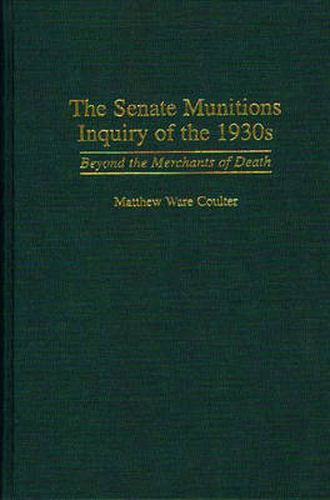Readings Newsletter
Become a Readings Member to make your shopping experience even easier.
Sign in or sign up for free!
You’re not far away from qualifying for FREE standard shipping within Australia
You’ve qualified for FREE standard shipping within Australia
The cart is loading…






The Munitions Inquiry, often called the Nye Committee after its chairperson, Senator Gerald Nye, critically examined the pre-World War II military-industrial complex of government agencies, corporations, labor unions, and financial institutions. Cold War-era historians typically presented the inquiry as a naive isolationist search for evil arms dealers who caused wars. Going beyond the concept of the Merchants of Death theory and into the social, intellectual, political, and cultural currents of the 1930s, Coulter expands the dimensions of a topic formerly framed within the narrow confines of isolationism and internationalism. In addition, he shows how the committee’s 19th-century values and progressive idealism were unsuited to an era dominated by Hitler and Mussolini. In divesting the Munitions Inquiry of its image as an historical oddity, this book recovers a piece of American history that had been a casualty of World War II and the Cold War.
$9.00 standard shipping within Australia
FREE standard shipping within Australia for orders over $100.00
Express & International shipping calculated at checkout
The Munitions Inquiry, often called the Nye Committee after its chairperson, Senator Gerald Nye, critically examined the pre-World War II military-industrial complex of government agencies, corporations, labor unions, and financial institutions. Cold War-era historians typically presented the inquiry as a naive isolationist search for evil arms dealers who caused wars. Going beyond the concept of the Merchants of Death theory and into the social, intellectual, political, and cultural currents of the 1930s, Coulter expands the dimensions of a topic formerly framed within the narrow confines of isolationism and internationalism. In addition, he shows how the committee’s 19th-century values and progressive idealism were unsuited to an era dominated by Hitler and Mussolini. In divesting the Munitions Inquiry of its image as an historical oddity, this book recovers a piece of American history that had been a casualty of World War II and the Cold War.